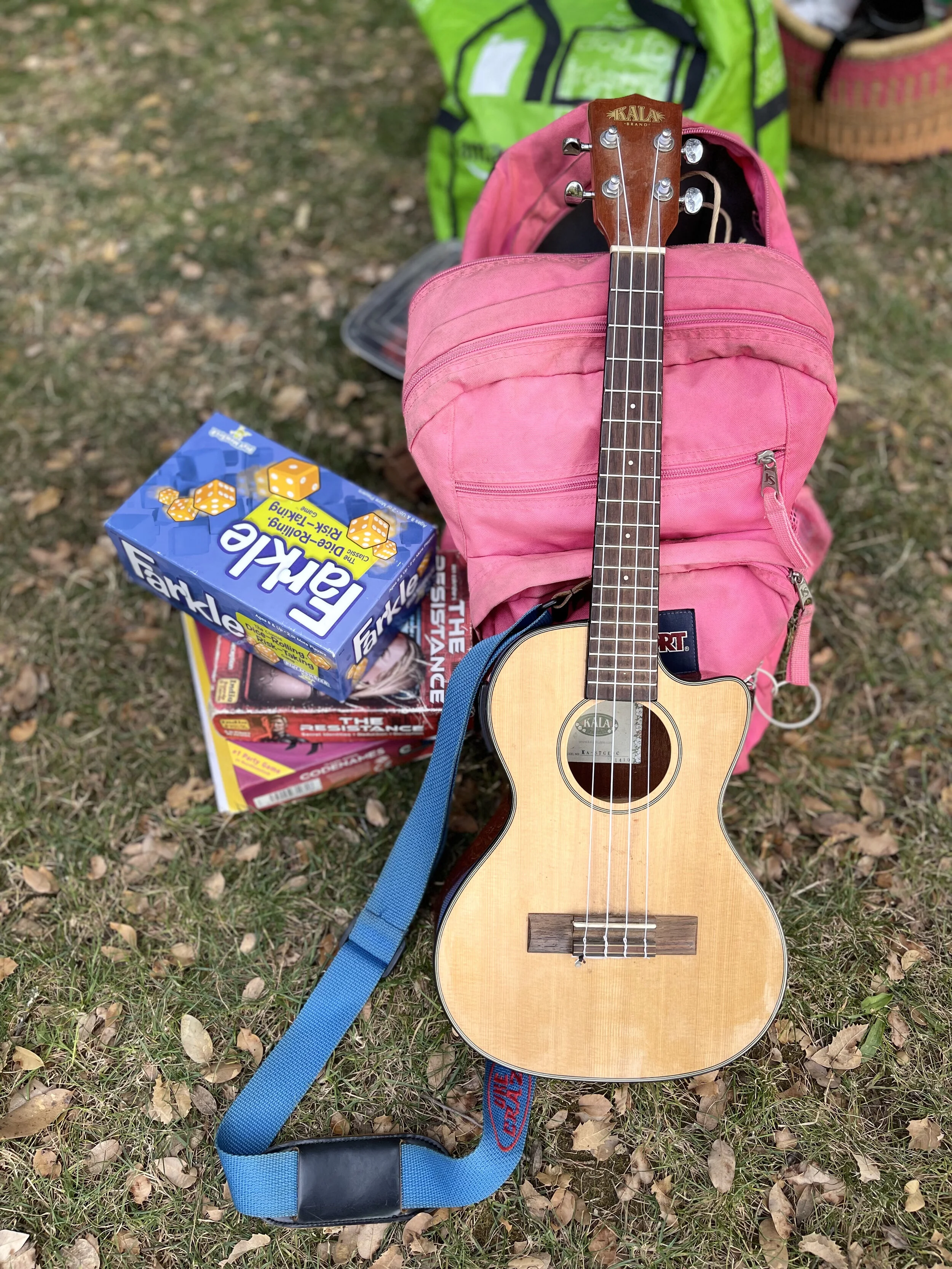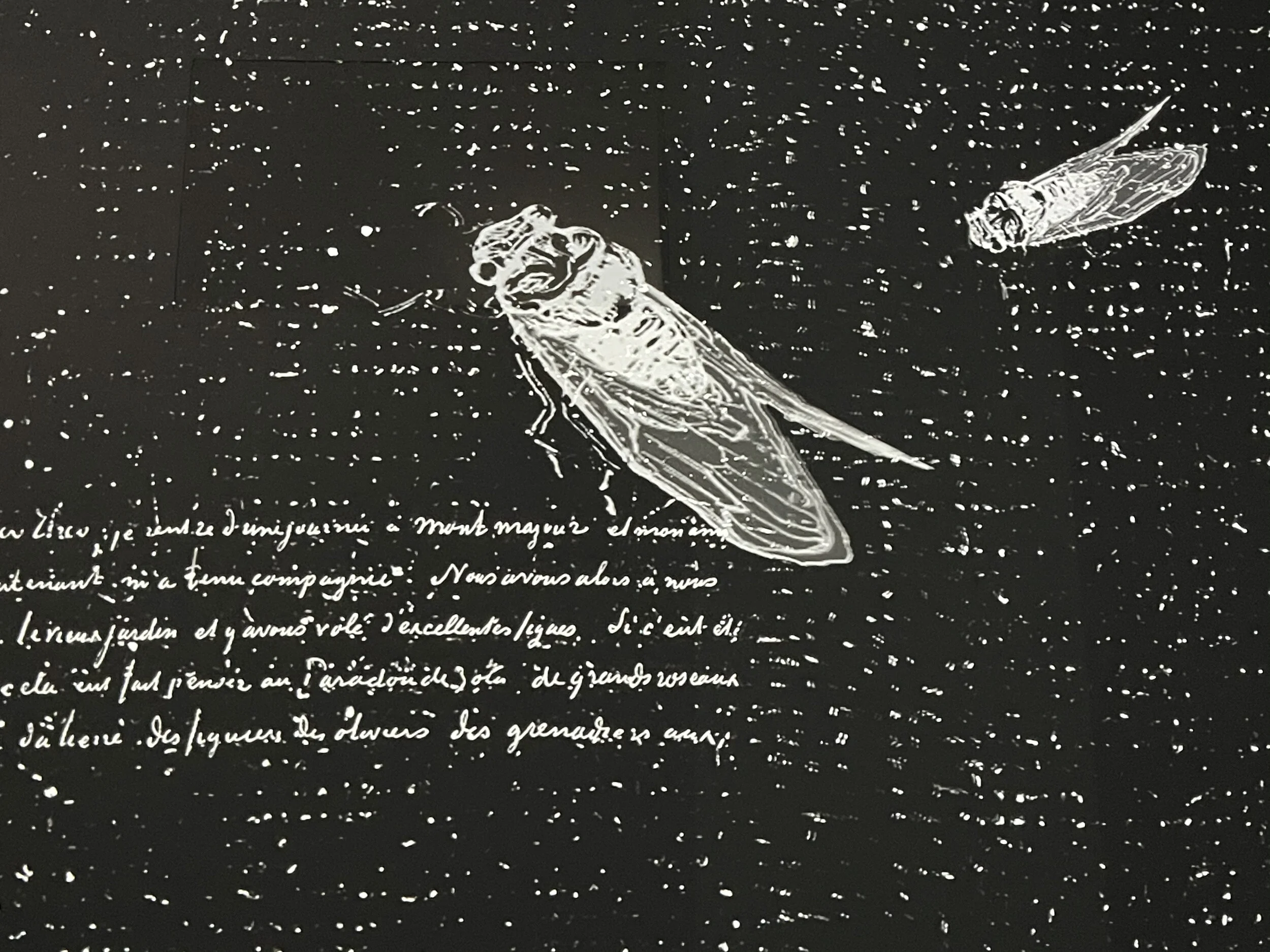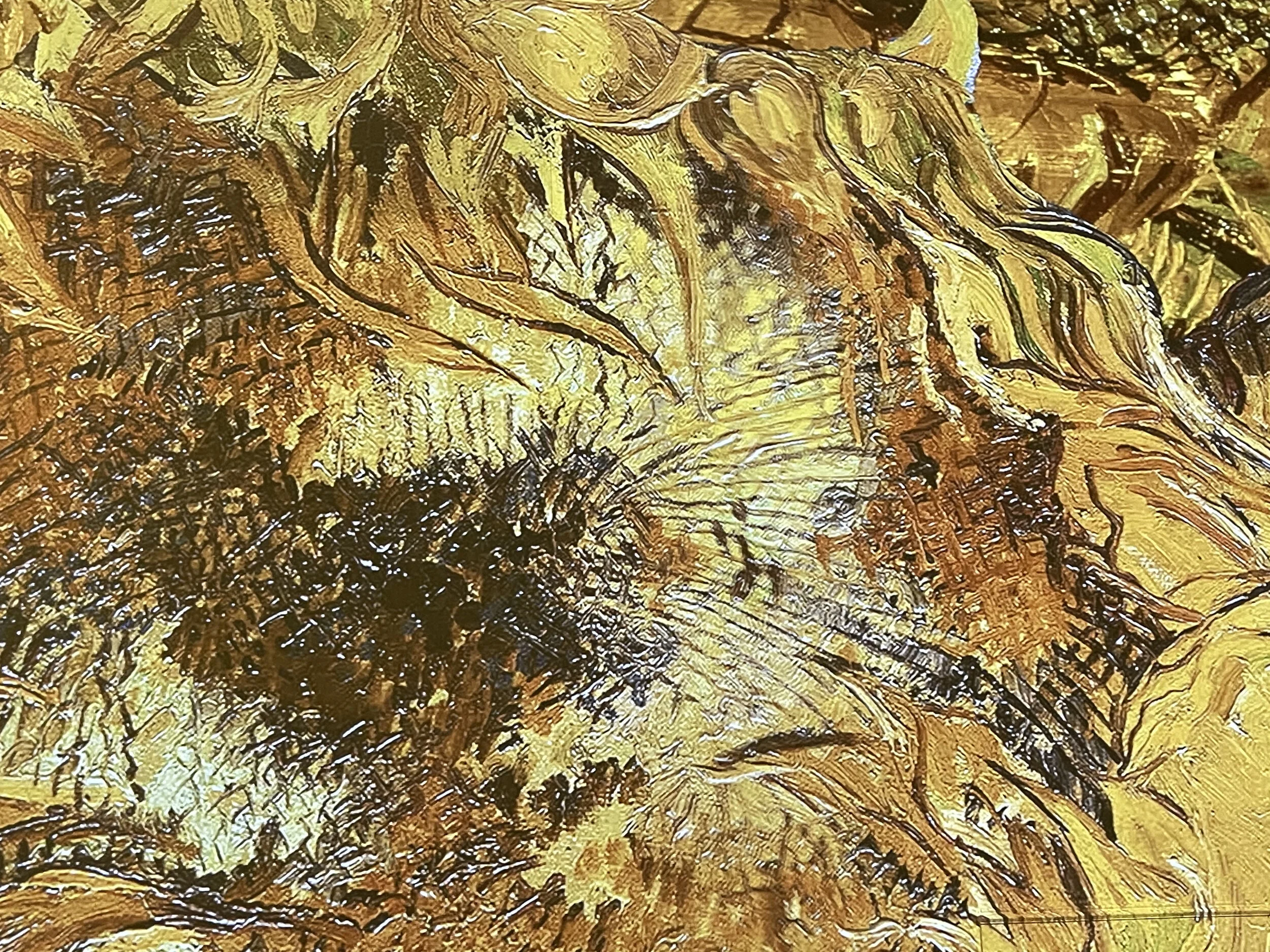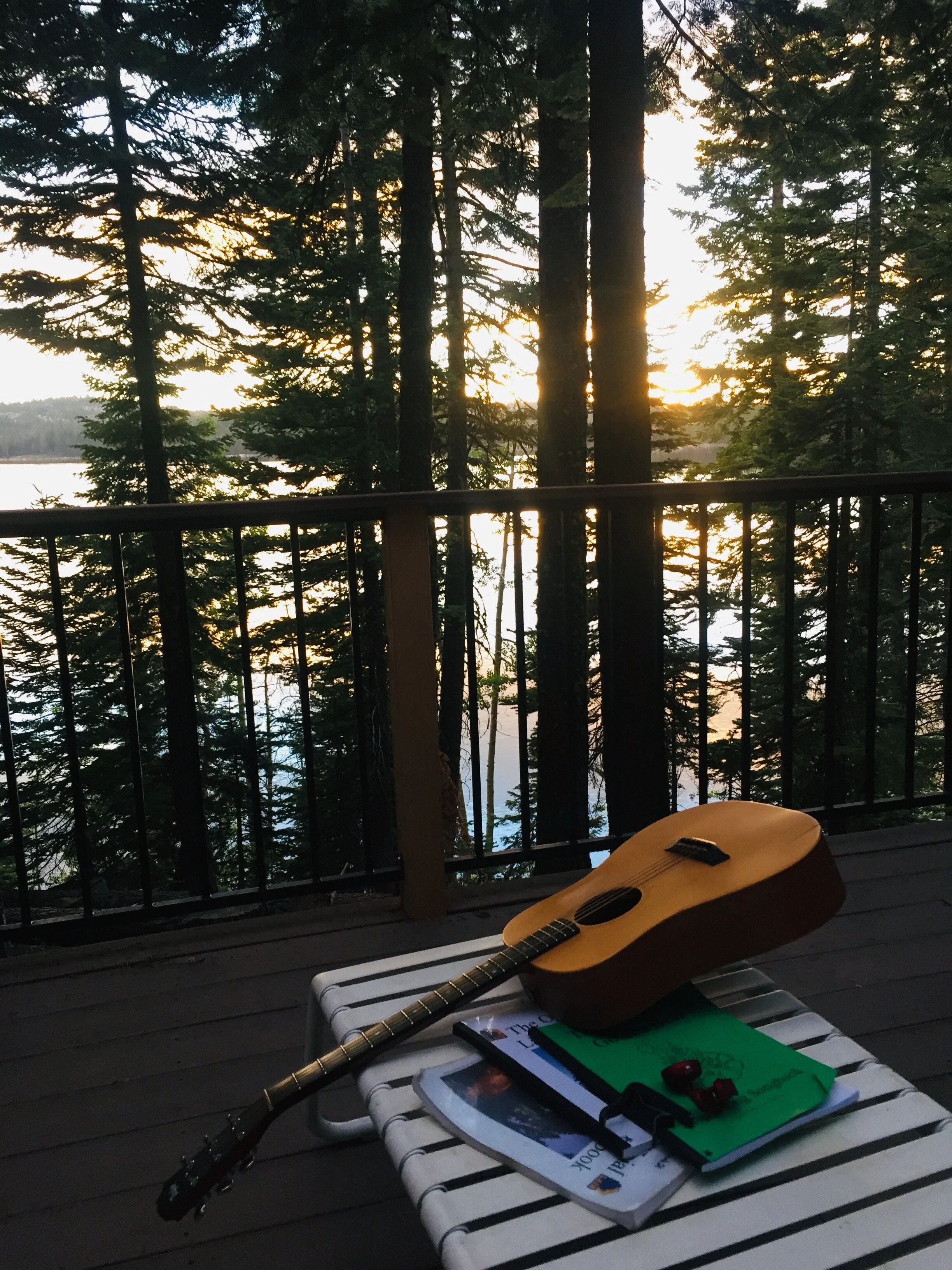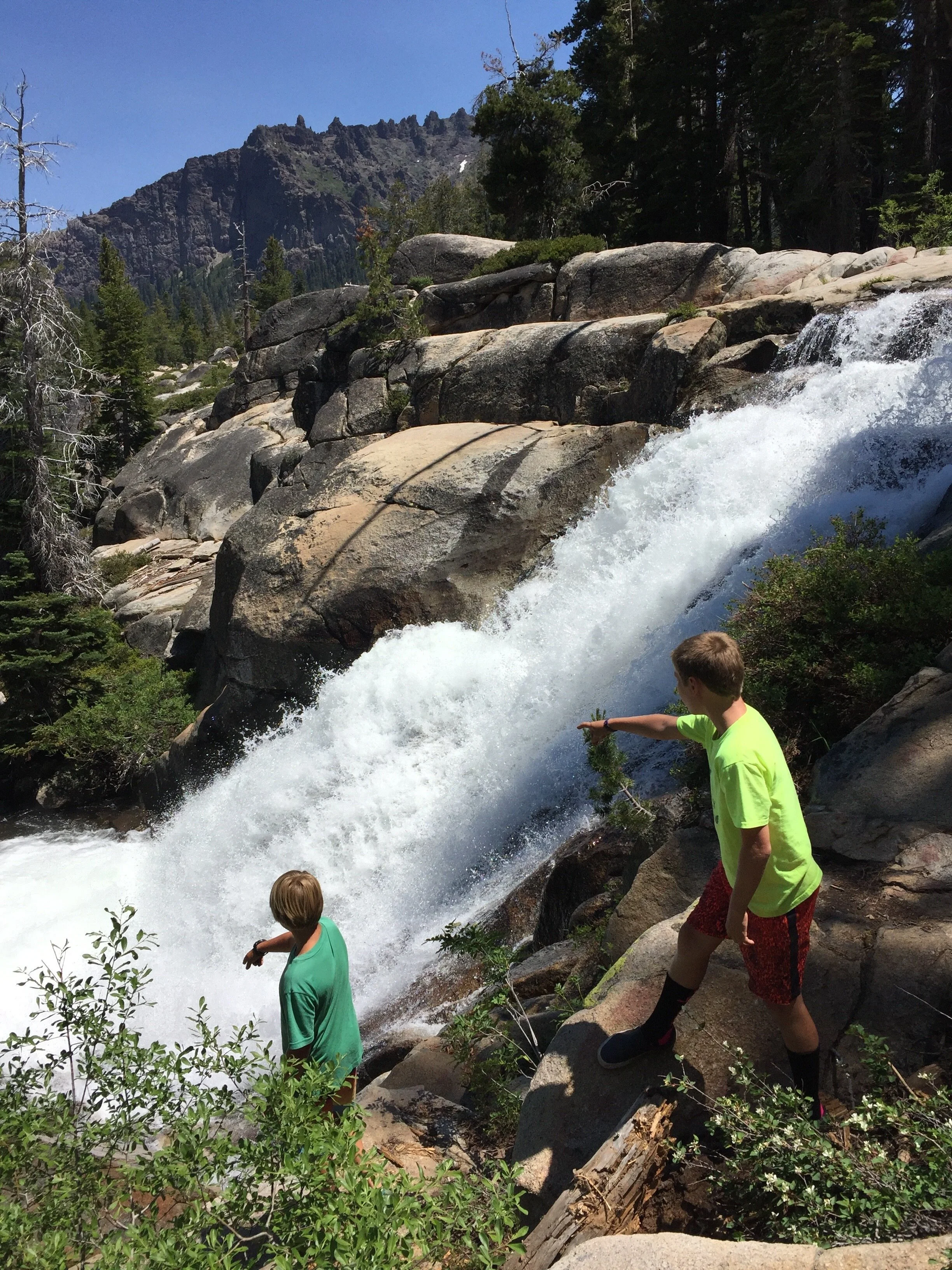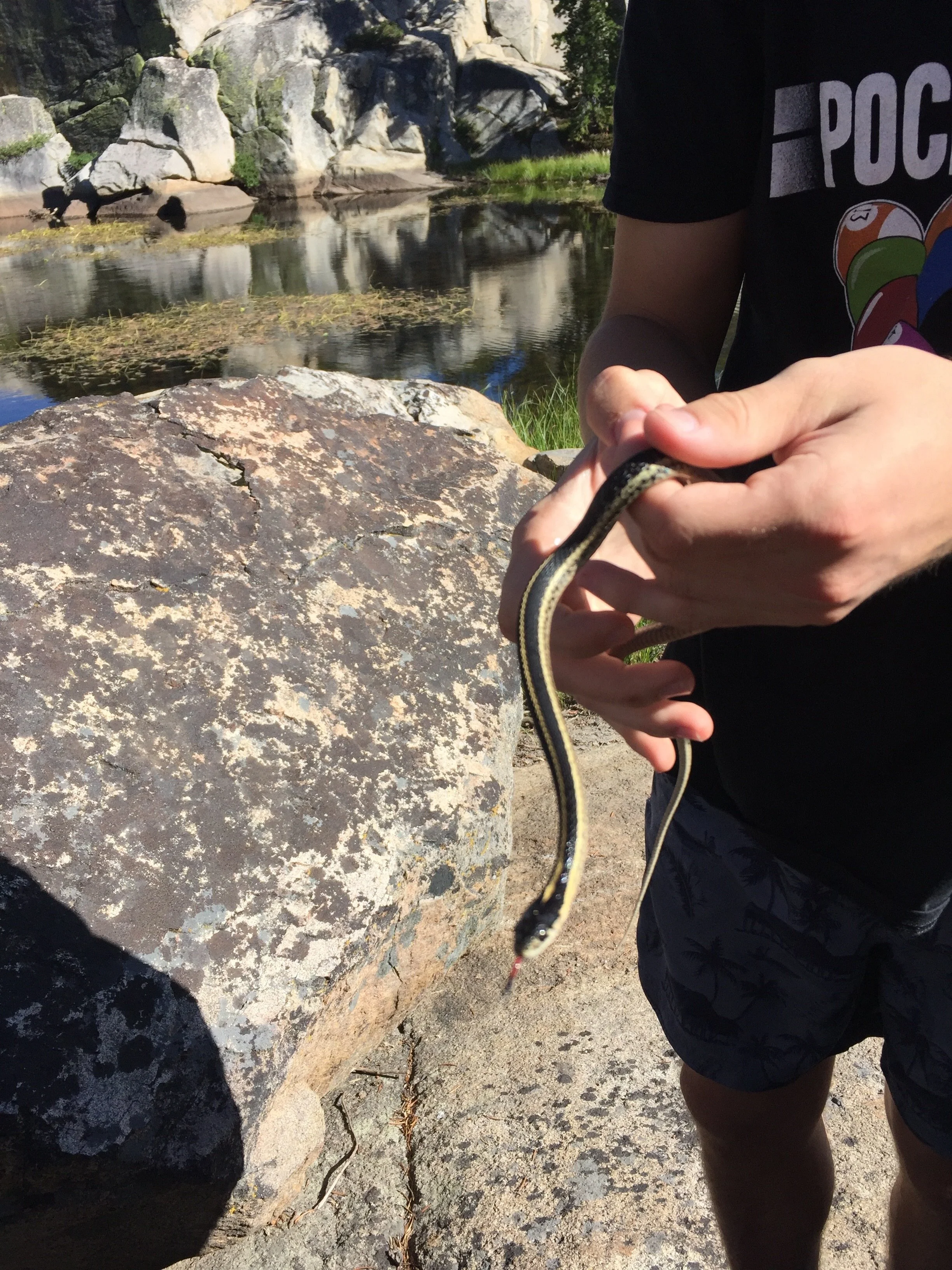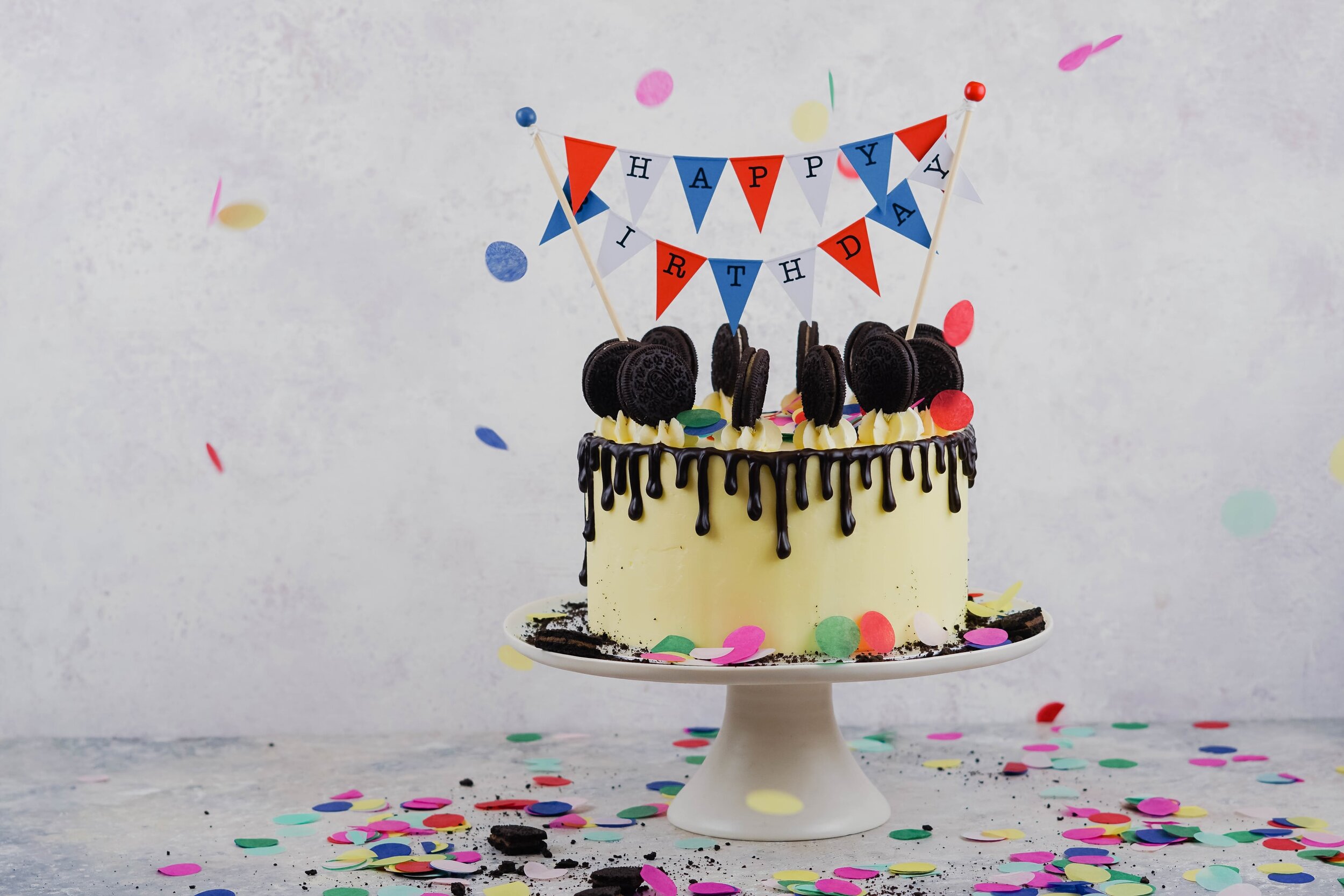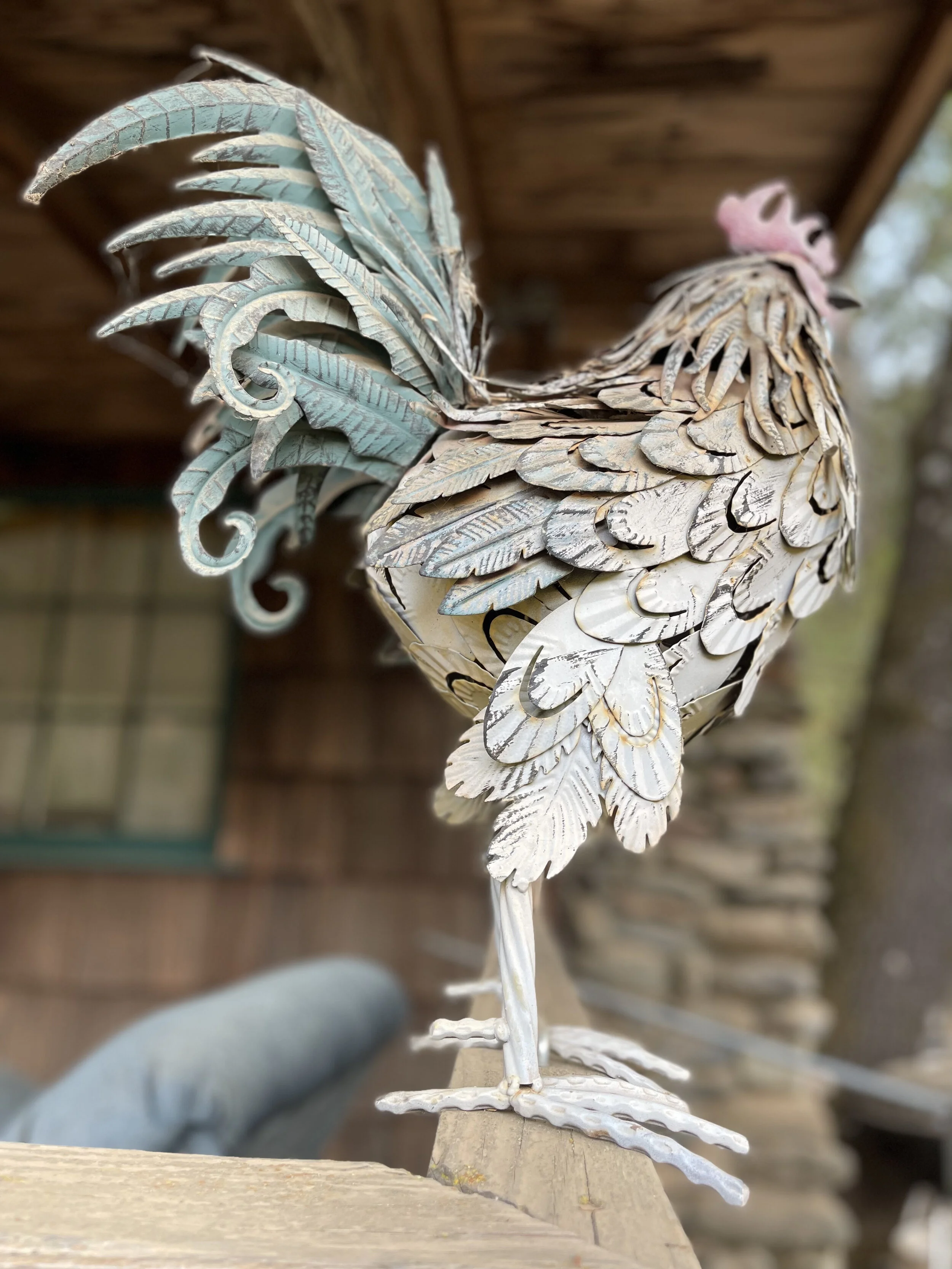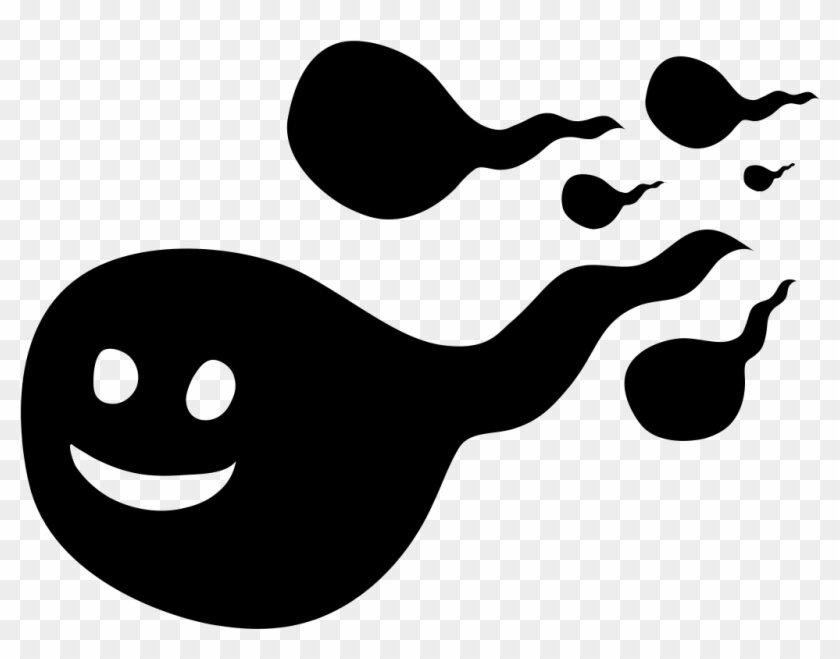We walked through the barren corridors slowly. I took the rear behind my mother with Grandma on her arm. We paced ourselves with my stooped Grandma’s reliable shuffle. A musty odor seeped out from the sterile walls around us, a chemical smell of disinfectant with a faint stench of urine. Identical and evenly spaced doors to patients’ rooms were open, exposed to the florescent-lit hall. As we passed by, I couldn’t stop myself from glancing into them. I saw two or three single beds with white sheets and brown hospital blankets like army-issue. Lumps lay motionless under the blankets, silent curled contours with wisps of silver hair escaping onto pillows. I searched for a motion of some kind from those mounds, a heaving of the chest, any sign of life. Occasionally, a pair of large, wet eyes caught me staring, an old man or woman sitting up in bed or in a wheelchair next to the silent bed-lumps, leaned forward, eyes fixed out the door. I don’t know what they expected to see.
Some moaned. Some wailed for help. I saw the pink of their open mouths. They talked to their knees. They talked to the walls. It was a din of human squawks and murmurs and rasping coughs. I smiled at everyone, increasingly desperate to give these people something, to stop the dissonance, to change the look of those glazed eyes.
One corridor led to another. We passed wheelchairs and dried apple faces. Bent stick figures leaned against walls, watching their own feet below them slide forward inches at a time as they gripped the wall railing tightly with both hands. A few shriveled faces scowled at us.
And my granddad was here? I had never seen him outside his familiar settings, foremost my grandparents’ stucco house in Oakland with the red-tiled roof and the arched doorways. Afternoons usually saw him in the basement watching golf on an old TV with rabbit ear antennae and swinging his golf irons. During commercials he whacked plastic golf balls into a homemade padded backstop, making a glorious thwack. Or he was with us at our house, or on our outings, always in his felt fedora angled slightly on his head. The most foreign place I ever saw Granddad was in a rustic mountain cabin beside Fallen Leaf Lake on a summer vacation when I was a kid. Without his golf clubs or old Chrysler, we played cards and drank Tang together.
No, Granddaddy shouldn’t be here. He should be home snoozing in his special chair in the living room, a long, cumbersome recliner with a built-in 1955 vibrator massage, the red fabric faded from years of afternoon sunlight beaming in through the big picture window. After our weekly Sunday supper, Granddad would lean back in his sacred chair as we all watched TV. Inevitably, his eyes would close and his mouth would drop comfortably open, until he snored himself awake, smiling at us all from a dream.
Grandma, Mom and I stopped at blue double-doors that read “Special Care Ward.” An alarm shrieked at us as we pushed the heavy metal doors open. The ringing pulse silenced as they sealed automatically behind us.
A long, single hallway led to another set of heavy double doors on the other end with “Emergency Exit” stenciled in large letters on them. The shrill ringing of both sets of doors provided shivering background music during the entire half hour visit. In here, the walls were not quite white, the floor not quite clean, the temperature not quite warm. At a nursing station and visitors’ desk, a couple of nurses who knew Mom and Grandma looked up from their paper work and greeted them. The head nurse came out from a brightly lit back room to shake hands, as if hostess of a dinner party. I thought the nurses smiled too much.
Almost the moment Mom finished her introductions and I dropped my hand to my side, the matron looked over my shoulder and chimed, “Here’s Lacey now.”
I tried to prepare myself, remembering Mom’s warning that when I saw him I would be seeing a hollow shell, his mind, my Granddaddy, just an echo. Even to his doctors, Granddaddy’s condition was largely a mystery at that time, except its name. Not much was known about Alzheimer’s disease in the 1980s, why it happened, why it differed in intensity and rapidity of decline amongst sufferers. Doctors didn’t know yet how to effectively slow down the erasure of a person, and the staff was still learning how to care for the abandoned body remaining. Almost all the folks in my Granddad’s ward had Alzheimer’s, their minds fading at varying speeds, but all reaching the same point of oblivion, and then death.
“Here he is,” Mom sang as cheerfully as the nurse. I turned.
Coming down the hall in a flurry was a shrunken, bent, skinny little man, the bluish skin of his face almost transparent.
“He weighs 98 pounds now,” Mom told me matter-of-factly. The small man stared straight ahead as he pushed forward, eyes glazed. Granddaddy.
He didn’t acknowledge us at all but kept going, one hand gripping the railing on the wall, the other bent rigidly at his side, knitted into a tight first. A crusty bit of congealed soup hung on his bottom lip and chin. I couldn’t stop staring at it, hardened there without regard. I fought against nausea. It wasn’t until we were almost leaving that a smiling nurse came by with a damp cloth to wipe it off his face.
“Hi Pop,” Mom sang.
“Hi Father,” smiled Grandma sadly.
He walked past me.
“Hi Granddaddy. It’s me, Linda.”
He kept striding on.
“Get right in front of him so he can see you,” Mom coached, moving me into position. Blocking his path, I repeated my greeting. He looked at me. He looked right at me. I saw, for one second, a sparkle in his eye, like a smile trying to escape. The corners of his lips moved, just slightly. I think he saw me. I know he did or want to believe he did, a split-second of recognition, of consciousness.
And then it was gone again, extinguished and forgotten. And I didn’t know if it had really happened. He walked around me.
We caught up and marched along side of him.
Suddenly he grabbed my hand. His grip was strong, a convulsive squeeze like that of an infant’s fist. Grandma came around and took his other hand, and he led us both in a bustle down the corridor.
“Go, go, go!” He shouted with a slur.
“C’mon, c’mon, c’mon!” He commanded loudly.
“Les’go, les’go, les’go!”
Grandma patted his hand. “You look good, Father,” she said to him. “Yes, you like to walk, don’t you, Lacey?” I freed my hand from Granddaddy’s grip, watching the couple go on together hand in hand, Granddaddy tugging his wife along, the two swaying like a pair of toddlers.
I wondered where he thought he was going. Somewhere in his past? The family farm with a little log farmhouse in Tennessee maybe, where he grew up and worked with his parents and his four sisters. He had worked hard all his life. Granddad Lacey taught me the value of hard work.
The moment we had entered the ward, closing the first shrieking door, Grandma had said softly to Mom, “We won’t stay long.” And they talked about the time. Every so often, during our visit she would mention we should be going soon. In her last few letters to me in London, her tone had become resigned.
“He would be better off dead,” she had written. “Better off dead. Let him die.”
I had never heard her speak that way before. I did not keep the letters.
I caught up to take over for Grandma and let Granddad lead me down the hall, around by the emergency door and without hesitation into someone’s room, around and out again, ignoring its inhabitants, two women who stared at us vacantly. Before I could even smile in apology, we were back out in the hallway, trotting along the opposite wall.
“C’mon, c’mon, c’mon!”
“It’s good to see you, Granddad,” I started. But there was too much to say. Don’t you remember Granddaddy? You taught me manners, to chew with my mouth closed. Do you remember that joke you made about Aunt Hazie at the dinner table? Grandma was wondering how much fabric she needed to buy to make Hazie a new dress and out of the blue you said, “About forty feet.” Do you remember teaching me how to swing and putt in the basement in Oakland?
At the end of the hall we went around by the other emergency exit and started up the other side once again, Granddaddy bow-legged and intent. Mom said that’s all he did, all day long, walk up and down the corridors and in and out of the open doors.
We swung into the “recreation room.” Dazed, expressionless gray heads leaned toward painting easels and over tables piled with puzzle pieces. The patients at the easels held quivering brushes to water-colored blue mountains and yellow butterflies, shaken and distorted. A seated woman, more shrunken and hollow-cheeked than Granddad with bulging eyes and a crooked mouth, reaching for a wood-handled brush that lay just beyond her trembling hand. She kept stretching out her bony fingers towards it. The man sitting next to her could easily have handed the brush to her, but he looked only at his own drawing, seeing nothing else. No one spoke a word. Granddad followed the walls and out we went again.
“Granddad can’t understand us,” Mom said in the hall. She asked him if he wanted some water. He sloshed out, “Yeah, yeah, yeah.” Catching my optimistic look, Mom shook her head. Taking a glass of water from a nurse, my mother held it out to Granddaddy’s mouth. He stopped, leaned with one hand on the rail, protruding his lips toward the glass. He couldn’t quite get it. “Up here, up here,” he yelled. Look, he can understand some things, I thought.
“Do you like that, Father?”
“Like, like, like.”
“He sometimes repeats things that we say,” Mom explained.
“We should be going, Nancy,” Grandma said.
We said good-bye and let go.
While Mom and Grandma went to say good-bye to the head nurse, I watched Granddad stride on, taking his endless laps. A woman in a wheelchair was blocking his path. As he approached, she lifted her fist and tried to give him a good sock in the chin. A nurse jumped to the rescue.
I remembered a bewildering report in a letter from Mom several months ago telling me that Granddad had gone through a violent stage and had even kicked Grandma in the shin. Then, the problem was that he made too much noise, almost causing his expulsion from the “home.” He kept opening the emergency exits at one end of the hall, then the other, all day long, making the siren shriek over and over.
When I joined my mother, the nurse was chatting about a video tape.
“What video tape?” I asked.
“We have it at home,” Mom said, “It shows the progress of some of the patients over the last year, how they’ve changed.”
Progress? That certainly seemed the wrong word.
“Is Granddad in it” I asked.
“Oh, he’s the star!” the nurse proclaimed brightly.
Out we went, with the whooping of the alarm.
“Good-bye, Granddaddy,” I called out to his back.
“Go, go, go!” he said, his back to us.
Slumped in the back of the car, I stared out the window and quietly cried. I knew what to expect when I went in, but still I carried a fantasy into blanched Hillview that Granddaddy would call out my name, that somehow my presence would bring him back. Mom told me that he had said my name earlier in the year. When I was not there.
He died soon after. Not long after that, Grandma moved out of their house of 50 years. I asked for his old recliner and kept it for a while, even turned on the old vibrator-massage now and then, until it became too cumbersome to move around. I can still see Granddad, picking Meyer lemons off their backyard tree for Grandma’s lemonade, kissing her under a sprig of mistletoe at Christmas, delighting in free sparkling wine offered by the shopkeepers at our small town holiday open house. These memories are now coupled with that frail, ever-pacing man and that moment when—just for a second—he may have known me, though I’ll never know for sure.







